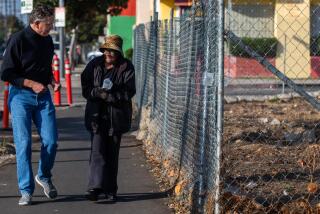Burning Issue Roils Company Town
It’s a tale of two towns that are actually one and the same.
In Norco, La., two women drive past the Shell chemical plant from opposite directions as smokestacks burn off chemical gases with a brilliant flare. The first woman, who is black, cringes at the “frightening” sight; the second, who is white, sees it as a thing of beauty, a symbol of economic security.
That contrast marks the social split explored in “Fenceline: A Company Town Divided,” an earnest but plodding edition of “POV” airing at 10 tonight on KCET.
Activist Margie Richard, a longtime resident of the all-black area that abuts the refinery, knows dozens of neighbors who have asthma. She and others in the neighborhood--where only one resident works at the refinery that Shell built along the community’s “fence line”--blame high rates of respiratory ailments, cancer and birth defects on plant emissions. They are trying to negotiate relocation money from Shell.
The point of view of the town’s majority white population is voiced by various residents with long links to the refinery, including a retiree who fairly quakes with tearful pride when remembering company picnics and other good times. These residents, who live farther from the plant, say they know of no illnesses caused by emissions.
Filmmakers Slawomir Grunberg and Jane Greenberg eventually find shades of gray in the opposing viewpoints. While the white residents resent the way Shell’s opponents portray the company and the town, they also respond with grudging sympathy for Norco’s black community.
Viewers may grudgingly admire this film, which thoughtfully examines the role of economics in the struggle between industry and environment, but it moves slowly, at the pace of life in the Mississippi Delta.


